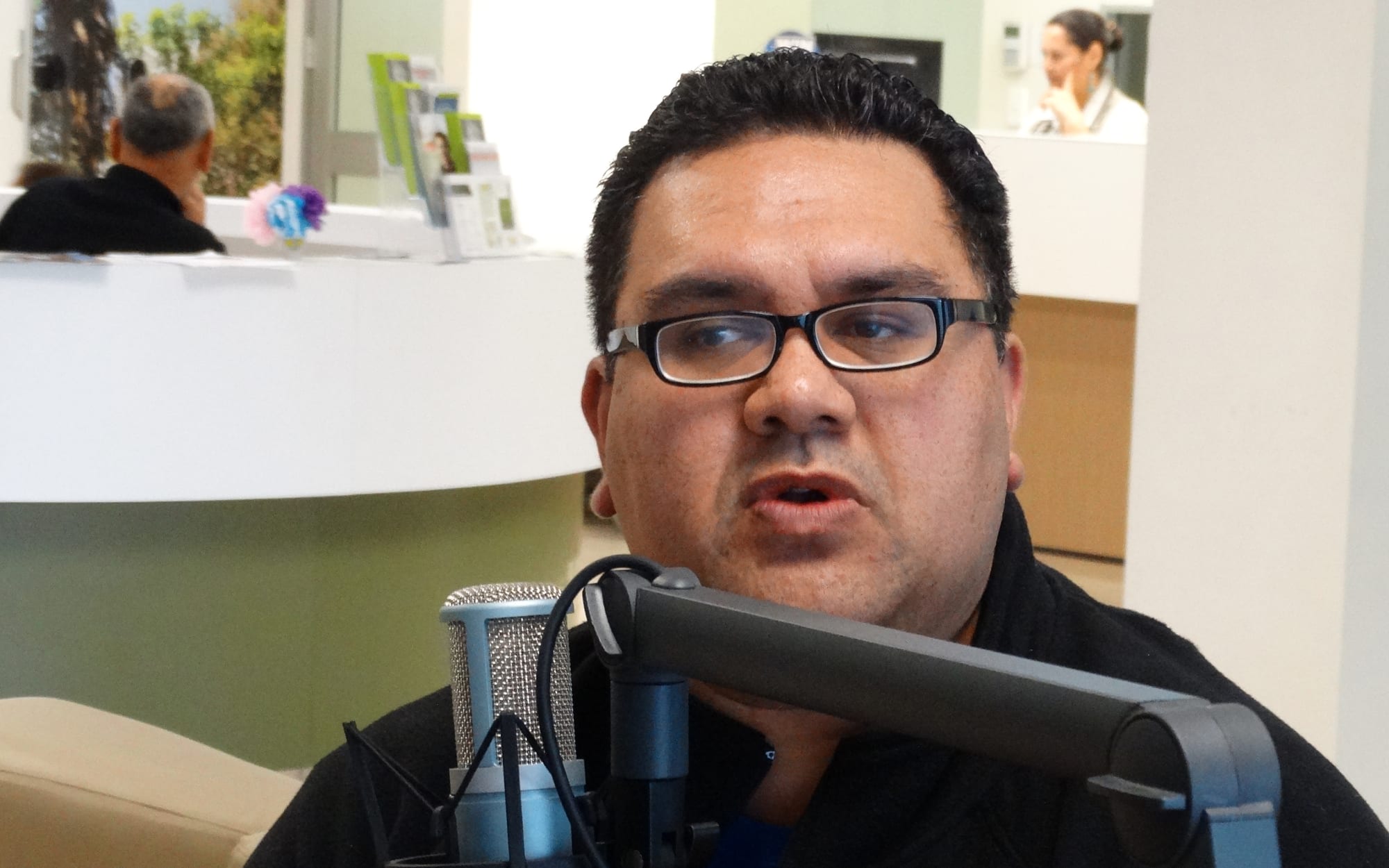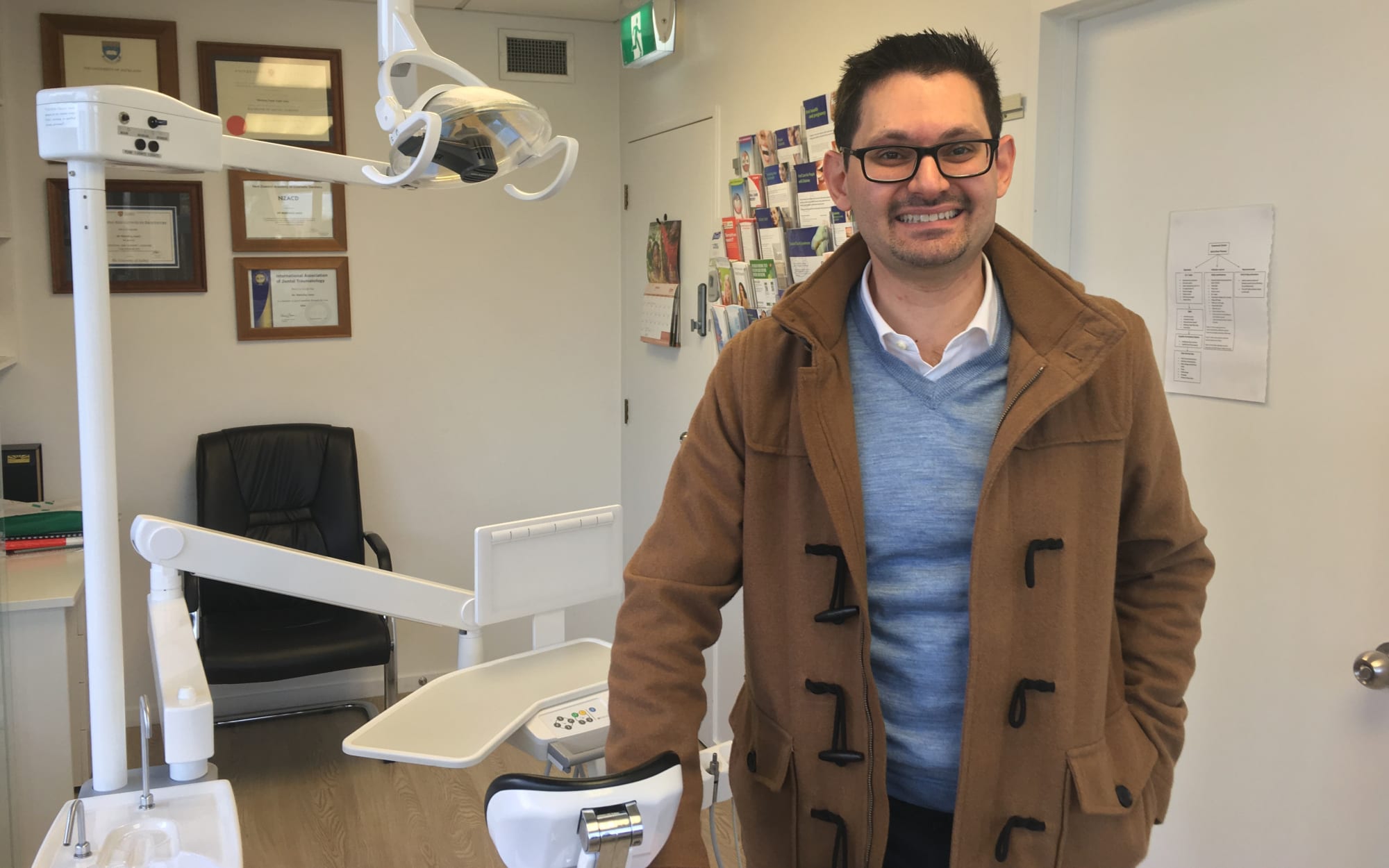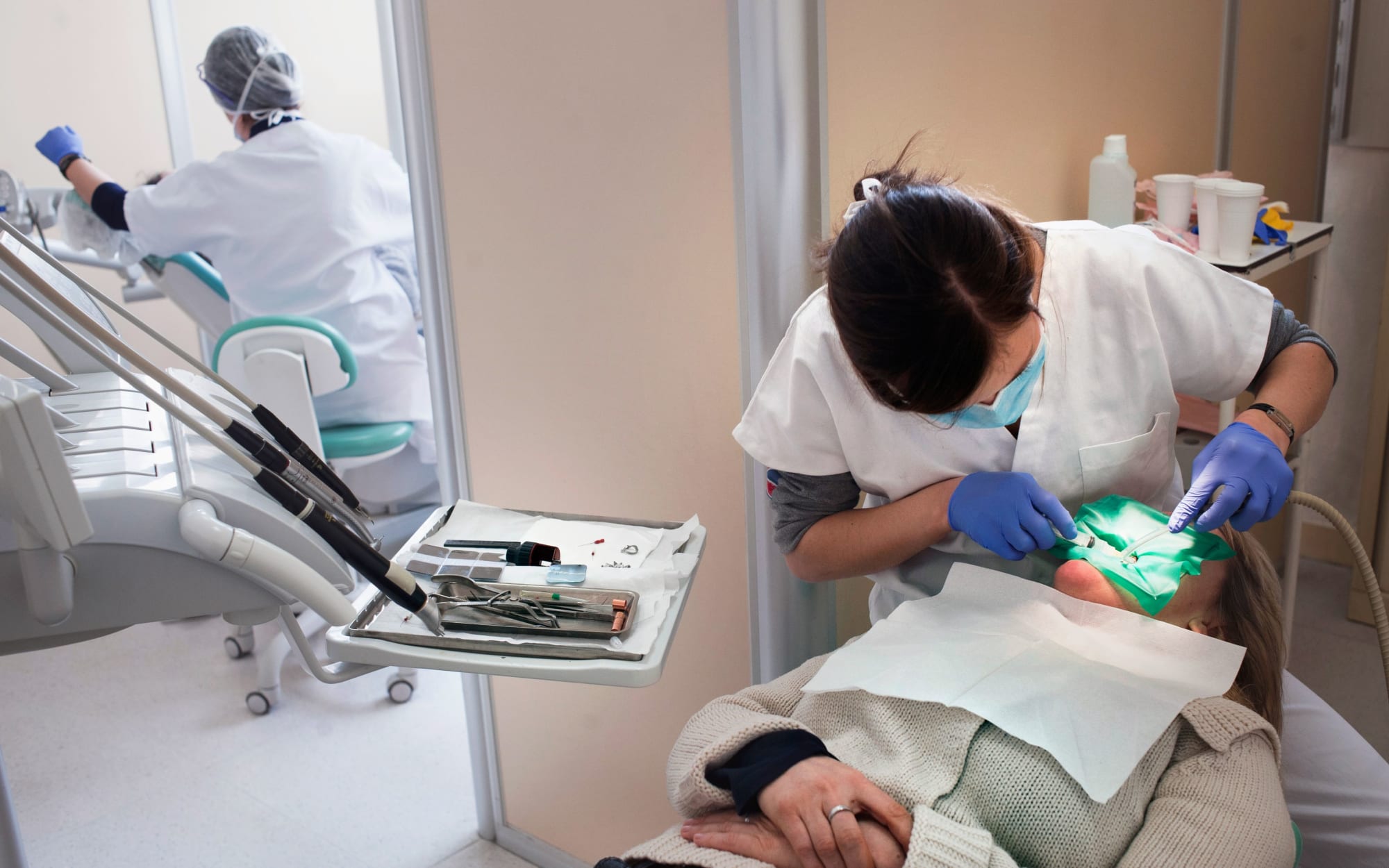After years of being neglected, Anthony Thompson's teeth came back to bite him.
It's a familiar tale: one that starts with dodging the school dental nurse and ends in a $6500 dentist's bill.
"We did have a dental nurse at school when I was young, but they came around once every six or eight months, and if you weren't at school on the day, you'd actually miss out," Mr Thompson says.
"In my teens, I didn't worry about teeth, oral health, oral hygiene. I'm regretting it now."
Sporadic trips to the dentist as an adult followed. In his thirties, after a wisdom tooth played up, his dentist told him he had other problems with his teeth and needed to get them fixed.
Unable to afford the cost, he put it off until a few years later when his income had gone up.
Cue the $6500 bill, still being paid off now in weekly instalments. He needed a bridge to replace some missing teeth, others needed to be removed and some had to be re-formed.

Antony Thompson Photo: Supplied
"It's almost like a retrofit, it's close to the price of a small car to get your teeth done," he says. "But you've got to bite the bullet."
Many don't though.
Health Ministry figures for the year ended June 2016 show only 47.5 percent of all people over 15 visited a dental health worker in the previous year.
That figure has been dropping over the years, down from 51.5 percent in the year ended June 2007.
The numbers are even worse for Māori and Pasifika adults - about two thirds did not see a dental worker.
Anthony Thompson says cost is the main reason many people he knows aren't going to the dentist.
"A lot of whānau that I know are putting food on their tables, clothes on their backs and a roof over their head first, before they are worrying about anything else."
Oral health gap widening
Jonathan Broadbent, from Otago University's Faculty of Dentistry, says on the whole, New Zealanders' teeth are in better shape than they have been in the past.
However, the inequalities in oral health are becoming more noticeable, with a growing divide between those who can afford the best dental care and treatment and those who cannot, he says.
"I still see people very regularly in the clinics here at the School of Dentistry where I teach, who have teeth that are completely collapsing, that are more equivalent to the mouths that you might expect to see back in the 1940s or 1950s."
In New Zealand, everyone is entitled to free basic oral health services until age 18.
After that, though, you're mostly on your own.
Mowafaq Amso is the dental clinicial director at The Fono, a not-for-profit, Pacific-focused health and social services provider in Auckland.
The Fono has clinics in the central city, Henderson and Manurewa that provide affordable dental care.

The Fono dental clinical director Mowafaq Amso says some of the clinic's patients struggle with the cost of dental care Photo: RNZ / Sarah Robson
Some of the problems staff regularly see, like tooth decay and gum disease, are preventable.
If caught early enough, they're also often easily treatable - but cost is a big barrier to people visiting until the situation becomes more serious, Dr Amso says.
"As soon as you turn 18 and you're out of that free dental care scheme, you can only access government funding if you really had a problem that needed treatment.
"I don't think we're quite there yet in terms of providing funds for people who can't access dental care for prevention - so that includes a regular check-up, a regular clean."
Prevention the best cure
New Zealand Dental Association chief executive David Crum says when it comes to funding health services, the government has to weigh up where it can get the most value for money.
"In the end, dental decay is almost completely preventable.
"And so there does have to be - if you're competing for health dollars - the element of personal responsibility and taking responsibility for things like your dental health, because the disease is so easily prevented."
One step the government has taken during its term in office is to shift decision-making power for the fluoridation of water supplies from councils to district health boards.

David Crum Photo: Supplied / NZDA
The legislation is before parliament at the moment.
Dr Crum says it's a start.
"We are likely to see more areas of New Zealand with community water fluoridation and I think that that will definitely help those in lower socioeconomic groups, and get rid of some of this disparity between the haves and the have-nots in terms of oral health."
But the government hasn't taken action on sugar - one of the major causes of tooth decay - and Health Minister Jonathan Coleman has ruled out a so-called sugar tax.
Jonathan Broadbent says alongside decisions around fluoridation of water supplies, the government must also consider the root causes of tooth decay.
"What it's not doing is addressing the underlying causes, which are diet and deprivation.
"The thing that drives tooth decay is what you put between your teeth."
RNZ's election series Is this the Brighter Future? examines the government's record since it was elected in 2008. Read more here.



